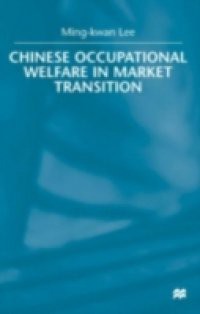Starting in the 1950s, China developed a system of occupational welfare which provided comprehensive 'from cradle to grave' benefits and services to state-sector employees. Millions of these workers and their families depended on their work-units for health insurance, retirement pensions, housing, various kinds of subsidies both in cash and in kind, various collective facilities and services such as nurseries, canteens, clinics, bathing facilities, and, in large units, schools and hospitals. This book explains the origins and nature of this unique system of welfare, and, based on a detailed case-study of a large, industrial, state-owned enterprise located in the southern city of Guangzhou, describes the changes that have led to the dismantling of the `iron rice bowl', the transformation of the socialist work-unit and the life of its members, and the creation of a model of welfare pluralism with unique characteristics. These changes have important implications for citizenship rights, family solidarity and state-society relations in China today.

